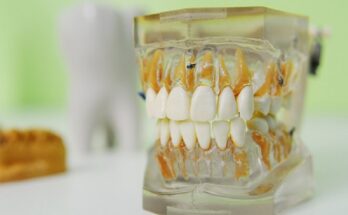Pain exists to warn us of the danger. If we felt no pain, we wouldn’t know when a body part catches fire or when we touch something sharp. Fear keeps us alert in the face of imminent danger. It’s not random that some creatures (like snakes and spiders) awaken atavist reflexes, even in infants.
As you can see, even negative sensations are there to tell us something that might protect us in the long run. The same goes for noise. Is there a reason why noise causes unease? Of course, there is!
Long-term exposure to noise and noise pollution may hurt your physical and mental health. Here’s why and how this usually happens and some tips on preventing it.
What is noise pollution?
Noise that exceeds 75 decibels is outright harmful, but any noise above 65 decibels is considered noise pollution. The noise should never reach this threshold during the day, especially in the resting stage. This noise is unnerving and may cause some long-term effects.
There are numerous sources of noise pollution. For instance:
- Traffic noise
- Air traffic noise
- Construction sites
- Nightlife venues
- Animal noises
This is one of the reasons why a home next to the airport, even when perfect in any other way, won’t reach the desired price threshold. This is also why, although dogs are God’s gift to humankind, your neighbor isn’t necessarily a bad person for asking you to quiet them down a bit.
A noisy upstairs neighbor is the most common cause of noise pollution in apartment buildings. While negotiating that they try to be quieter is the best solution, it won’t always be possible. So, you need to take matters into your own hands and soundproof your ceiling.
Noise causes stress
In the past, humans were warned of danger by noise. While most of these primal danger sources are no longer at play, our body is still hard-coded to enter into defense mode when hearing danger. This is why our amygdala is triggered, and noise increases the release of cortisol (stress hormone).
Over time, this kind of stress will cause all sorts of problems, ranging from damage to your cardiovascular system (your heart reacts to stress in a familiar way) to a disrupted sleep pattern. Noise distracts you, meaning it will be much harder for you to focus on the task. This means your cognitive abilities will be impaired, which may result in even more stress.
It’s really important that you unwind when you get back home from work.
Exposure to noise causes hearing loss
Everyone knows that a noise that is too loud may cause damage to your hearing. However, even a noise softer than you would expect can be dangerous over time. For instance, normal conversation is at about 60 decibels. Everything below that doesn’t cause any type of hearing damage.
The sound of a washing machine or city traffic inside a car may annoy you. Still, if the exposure is not too long, there shouldn’t be any permanent consequences. This noise moves up to 85 decibels.
Above 85 decibels are where the real damage starts. For instance, the noise of a gas-powered lawnmower, a leaf blower, or a motorcycle won’t cause permanent damage if the exposure is shorter than 1-2 hours at a time.
Sitting next to a subway train or at a nightclub may cause hearing loss in as little as 5-15 minutes. This hearing loss recovers, but there may be permanent damage if you repeat this too often.
Lastly, standing right next to sirens or a firecracker may cause instant hearing loss.
The biggest problem with these instances is that there are no definitive formulae of how long it will take for the damage to become permanent.
Noise increases blood pressure
Noise increases your blood pressure, and it’s, sadly, nearly impossible to avoid in the modern world. When researching these effects, most researchers use traffic noise as an example.
Sadly, this is a source of noise you can only afford if working from home, but, as we’ve already mentioned, you’re not spared from some form of noise even at home.
Now, when we mention that high blood pressure is a slow and insidious killer, we’re not exaggerating. Nearly 1,000 people die per day, and roughly 20% of people who suffer from high blood pressure aren’t even aware of it.
Sure, noise is not the only source of blood pressure, but it’s one factor you may be moderately able to control. More importantly, if you’re already suffering from high blood pressure, this is one more contributor that you definitely don’t need.
Reproduction problems
Noise pollution may cause some unexpected reproduction problems. Most people assume it’s about “getting in the mood,” but the problem is more serious and concrete.
It’s believed that a high noise level can disturb the unborn child. This is why, if a pregnant woman is exposed to noise pollution, chances are that the child will be born with less body weight.
This doesn’t sound catastrophic, but it’s definitely unhealthy. Who knows which other forms of trauma may be caused this way?
Emotional and behavioral changes
People who are too exposed to noise will be more easily agitated. This is not minor, especially seeing how it can cause and lead to major arguments. A couple living in a noisy apartment is more likely to argue. In some scenarios, the stress level may be so amplified that violence may become more likely to ensue. It’s important to note that this won’t cause violence; it will just be an amplifier.
Wrap up
There are two big problems with resolving the issues surrounding noise. The first one lies in defining noise. You may not mind some sounds but loathe others, regardless of the sound level. In other words, heavy metal from upstairs may be noise based on the context and your musical preference.
Second, there’s not a lot you can do in some instances. You can’t restrict your hearing while driving, and you can’t always choose your neighbors. The best you can do is ensure you get enough “quiet time” daily and soundproof your place to make this possible.




